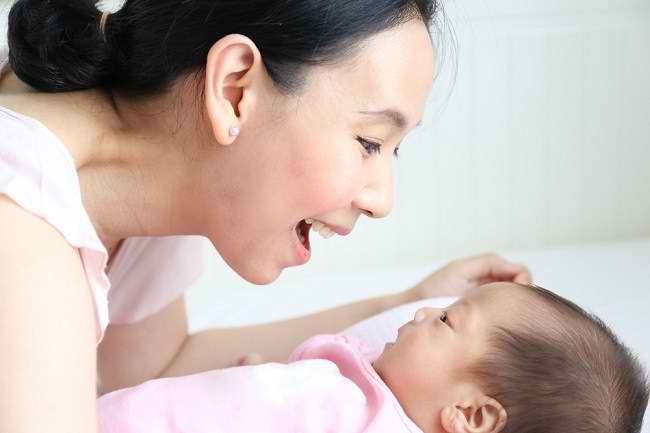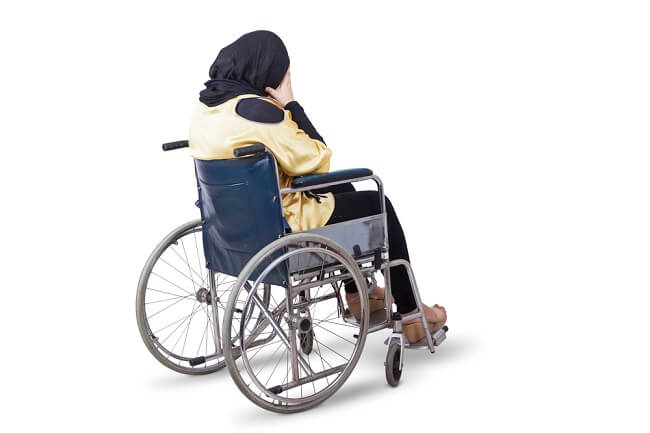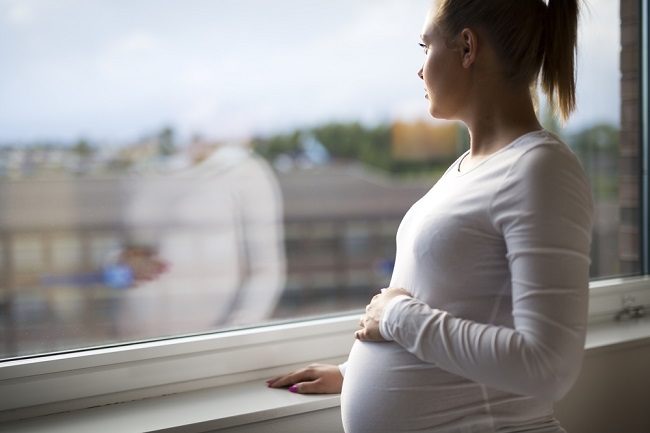Being pregnant at an old age, namely when you are over 35 years old, is indeed more risky, both for the pregnant mother and her fetus. However, with proper preparation, supervision, and prenatal care, you can still have a healthy pregnancy.
Pregnant at the age of 35 years, both for the first pregnancy and subsequent pregnancies, are classified as pregnancies in old age. Women who are pregnant at that age are generally more at risk of experiencing health problems during pregnancy. This risk can also occur in the fetus.

However, with good planning, as well as proper care during pregnancy and under the supervision of a doctor, old age pregnancy can still be lived safely and healthily.
Some Risks of Getting Pregnant Old Age
The ideal age for women to get pregnant is between the ages of 20 and early 30. When entering the age of 35 years, a woman's fertility rate generally decreases, thus affecting the number and quality of eggs produced.
Hormonal changes can also impact fertility or ovulation and increase the risk of certain diseases, such as endometriosis, which can affect fertility.
Not only that, there are several risks that can be experienced by women who are pregnant at an old age, including:
Genetic disorders in babies
Various studies have shown that pregnant women aged 35 years or older are at risk of giving birth to babies with birth defects or genetic disorders, such as Down's syndrome, congenital heart disease, polydactyly, and cleft lip.
Miscarriage risk
Women who become pregnant at the age of 35 years or older are also known to be more prone to miscarriage. Some research shows that women who are pregnant at an older age are 20–35% more likely to have a miscarriage, when compared to women who get pregnant at a younger age.
This condition can be caused by various things, ranging from genetic abnormalities in the fetus, poor maternal health conditions, or a history of previous miscarriages.
Risk of giving birth prematurely
Women who become pregnant at an older age are more at risk of giving birth to premature babies or being born with low birth weight. This can cause the baby to experience various health problems, ranging from respiratory problems, weak immune systems, to stunted growth and development.
Pregnancy complications
Women who undergo pregnancy at the age of 30-40 years are susceptible to various pregnancy complications, such as gestational diabetes and preeclampsia. This risk will increase if you have experienced a similar condition in a previous pregnancy.
The process of giving birth by caesarean section
Women who are older during pregnancy are also more prone to problems during delivery, so a caesarean section is needed. In addition, a history of previous caesarean sections can also make women who are pregnant at an old age need to give birth by the same method.
Tips for Having a Healthy Pregnancy in Old Age
Although getting pregnant at an older age is riskier, you can still have a safe and healthy pregnancy. Therefore, there are some tips that you can try to do during pregnancy in old age:
1. Routinely check the content
During pregnancy, it is recommended that you check the condition of the womb regularly. This examination is important so that the doctor can monitor your health condition and the growth and development of the fetus.
2. Take supplements for pregnant women
You also need to meet your nutritional intake during pregnancy by eating nutritious foods. To ensure adequate nutritional intake during pregnancy, you also need to take pregnancy supplements that contain a variety of important nutrients, such as folic acid, iron, and various vitamins and minerals.
Folic acid plays an important role in preventing neural tube defects in the fetus, while iron can prevent anemia during pregnancy. You can consult a doctor to determine the dosage of supplements that need to be consumed during pregnancy.
3. Maintain ideal body weight during pregnancy
It is important to always maintain an ideal weight gain during pregnancy. For women who already have an ideal weight, a healthy weight gain during pregnancy is around 11–15 kg.
Meanwhile, for women who are overweight, the ideal weight gain is around 6-11 kg.
Maintaining a stable weight gain during pregnancy can support fetal growth and reduce the risk of health problems during pregnancy and the risk of the baby being born prematurely.
4. Avoid habits that harm the fetus
Avoid various bad habits during pregnancy, such as smoking and consuming excessive alcohol and caffeinated beverages to reduce the risk of disturbances to the fetus.
In addition, by avoiding these habits, you can also be prevented from pregnancy complications, such as preeclampsia.
5. Detection of chromosomal abnormalities in the fetus
To detect chromosomal abnormalities in the fetus early, you can consult a doctor. The doctor can perform an obstetrical examination which includes ultrasound, amniocentesis or amniotic fluid examination, or examination of fetal blood through the placenta.
This test aims to detect possible disturbances in the fetus so that treatment can be carried out quickly and precisely.
By understanding the various risks that may occur when pregnant at old age or 35 years and over, you can reconsider getting pregnant at that age.
If you have decided to get pregnant again, you can prepare for pregnancy well so that the risk of health problems for yourself and the fetus can be reduced.
Therefore, you are advised to consult a doctor when you are about to become pregnant at an old age or are undergoing a pregnancy at an old age, so that the doctor can conduct an examination and monitor the health condition of you and your fetus during pregnancy.









